Life's Been Good Rocky Mountain Way Joe Walsh
Life's Been Good Album: But Seriously, Folks... (1978)
Rocky Mountain Way Album: The Smoker You Drink, The Player You Get (1973)
by Joe Walsh
"Life's Been Good" is a humorous look at the spoils of fame and fortune associated with being a rock star. Walsh pokes fun at the lifestyle of wealth and fame, and the spoiled mentality - how it's not him who has changed, but everyone else.
In a 1981 interview with the BBC, Walsh explained of Life's Been Good: "I wanted to make a statement involving satire and humor, kind of poking fun at the incredibly silly lifestyle that someone in my position is faced with – in other words, I do have a really nice house, but I'm on the road so much that when I come home from a tour, it's really hard to feel that I even live here. It's not necessarily me, I think it paraphrases anyone in my position, and I think that's why a lot of people related to it, but basically, that's the story of any rock star – I say that humbly – anyone in my position. I thought that was a valid statement, because it is a strange lifestyle – I've been around the world in concerts, and people say 'What was Japan like?', but I don't know. It's got a nice airport, you know... so it was kind of an overall statement."
Walsh lived up to Life's Been Good, indulging in the hedonism he sang about long after it was released. "I started believing I was who everybody thought I was, which was a crazy rock star," he told Rolling Stone in 2017. "It took me away from my craft. Me and a lot of the guys I ran with, we were party monsters. It was a real challenge just to stay alive."
Life's Been Good is the last song on the But Seriously, Folks... album. On the original album version, the music fades away into silence, then about 30 seconds later there is a really funny secret message from Joe Walsh, who says, "Wha-oh... here comes a flock of wanh-wanhs!", followed by a chorale of "wannh," "wanh," "wahn" (collectively sounding like a bunch of ducks or sheep).
The cover of the But Seriously Folks album shows Walsh eating a meal... under water. In the same BBC interview, he said: "I had to do that a couple of times, but I did go down to the bottom of the pool, and almost drowned... but it was fun. Not at the time, but it was fun to do. We weighted everything down, but it was very involved and it took a long time, and I was real proud of it. As long as you have access to art, or visually presenting something with your record, I would like to use that, pursue it and try to make it an integral part of the music. It was hard to do, but when I look at it, I can't believe it either, I can't believe I was stupid enough to do that, but I was proud of it. I won't be repeating it, I can assure you!"
In 1979, Walsh announced his campaign for President of the United States, promising "Free gas for everyone" if he won (he didn't). Don't blame me. I was thirteen years old, so I couldn't vote.
A famous line in this song, "My Maserati does 185," was used as the title to a 2005 episode of the TV series Entourage.
After leaving his group the James Gang at the end of 1971, Joe Walsh moved from Cleveland to Boulder, Colorado, where he wrote Rocky Mountain Way, which celebrates the scenery and lifestyle of Colorado. In some ways, the song is a rocked-up version of John Denver's "Rocky Mountain High," which was released the previous year. Both songs use the famous Rocky Mountains as a focal point for the virtues of Colorado.
Joe Walsh left the James Gang just as they were building momentum, having scored minor hits with "Walk Away" and "Funk #49." Splintering the band as they were on the verge of stardom didn't go over well with Walsh's bandmates or their record company, but Joe felt creatively limited in the 3-piece band and wanted out. Colorado put him near James Gang producer Bill Szymczyk, who continued to work with Walsh and produced this album.
"Rocky Mountain Way" reflects Walsh's range of emotions after making the big move. He explained in the book The Guitar Greats: "I got kind of fed up with feeling sorry for myself, and I wanted to justify and feel good about leaving the James Gang, relocating, going for it on a survival basis. I wanted to say 'Hey, whatever this is, I'm positive and I'm proud', and the words just kind of came out of feeling that way, rather than writing a song out of remorse. It was special then, and the words were special to me, because the words were like, 'I'm goin' for it, the heck with feeling sorry for this and that', and it did turn out to be a special song for a lot of people. I think the attitude and the statement of that have a lot to do with it – it's a positive song, and it's basic rock'n'roll, which is what I really do."
When Walsh moved to Colorado, he formed a band called Barnstorm, whose first, self-titled album came out in 1972. Their next album was The Smoker You Drink, The Player You Get, which contained this track. The song was co-written by the group: Rocke Grace (keyboards), Kenny Passarelli (bass), Joe Vitale (drums), and Walsh. The music was written before Walsh added the lyrics.
As for Barnstorm, they played up to their name and did over 300 gigs in 1973. The band broke up after the two albums, which have since been more commonly credited as Joe Walsh solo works.
Rocky Mountain Way was one of the first songs to feature a talkbox, which allows a guitarist to make distorted vocalizations with his mouth. Peter Frampton is probably the most famous talkbox practitioner, and his use of the device is prominent on his famous 1976 album Frampton Comes Alive.
Walsh is a big baseball fan, and this song has become associated with the game because of the lyrics "Casey's at bat," which is a reference to a famous baseball poem. When the Colorado Rockies baseball team formed in 1993, "Rocky Mountain Way" became a popular song at their stadium, Coors Field, where the song is played after a Rockies win.
Joe Walsh described writing the lyrics to this song during an interview with Howard Stern. Walsh explained he had the track recorded but had no ideas for lyrics. He had been living in Colorado after leaving the James Gang over creative differences with the direction of the music. He was mowing his lawn and looking at the Rocky Mountains and the lyrics came to him. He ran inside to write the lyrics but forgot to shut off the lawn mower. The mower ran into his neighbor's yard and ruined the neighbor's garden.
"It was a very expensive song to write," Walsh said, implying he had to pay to repair the damage to the neighbor's yard. He said the lyrics describe his anxiety about leaving the James Gang and his excitement about a solo career.
-
 3:57
3:57
Cyrus Saladin Ming
1 year ago $0.02 earnedPop Song 356 of 500 'Life's Been Good' Joe Walsh 1978
19 -
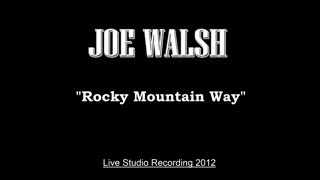 6:32
6:32
Classic Rock Live Music (High Quality Audio)
5 months agoJoe Walsh - Rocky Mountain Way (Live in Los Angeles 2012) Studio Recording
111 -
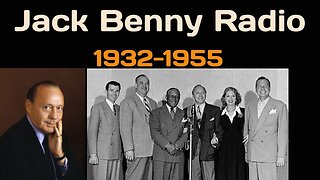 16:00
16:00
TeslaWirelessRadio
3 months agoJack Benny - 1934-02-25 My Life as a Floorwalker in Omaha
54 -
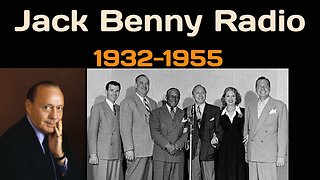 20:00
20:00
TeslaWirelessRadio
3 months agoJack Benny - 1934-03-18 An Arizona Western
68 -
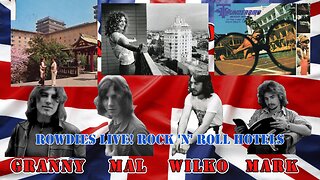 1:03:54
1:03:54
That SeventiesRockFan
7 months ago🎸 Rowdies Live! Rock 'n' Roll Hotels 🤘
1752 -
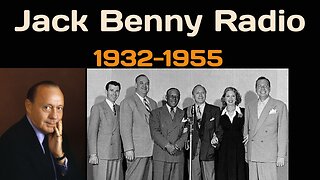 19:13
19:13
TeslaWirelessRadio
3 months agoJack Benny - 1934-02-18 Don't Live Right
58 -
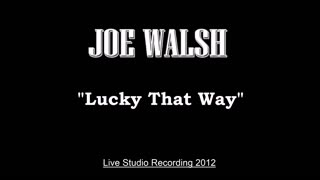 4:20
4:20
Classic Rock Live Music (High Quality Audio)
6 months agoJoe Walsh - Lucky That Way (Live in Los Angeles 2012) Studio Recording
2862 -
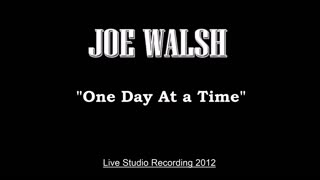 3:25
3:25
Classic Rock Live Music (High Quality Audio)
5 months agoJoe Walsh - One Day At A Time (Live in Los Angeles 2012) Studio Recording
5141 -
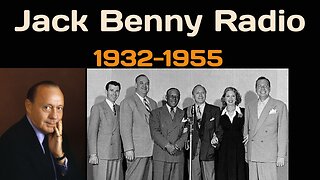 26:00
26:00
TeslaWirelessRadio
1 month agoJack Benny - 1936-04-12 From Cleveland - Ah, Wilderness
36 -
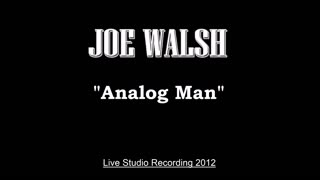 3:54
3:54
Classic Rock Live Music (High Quality Audio)
6 months agoJoe Walsh - Analog Man (Live in Los Angeles 2012) Studio Recording
4112